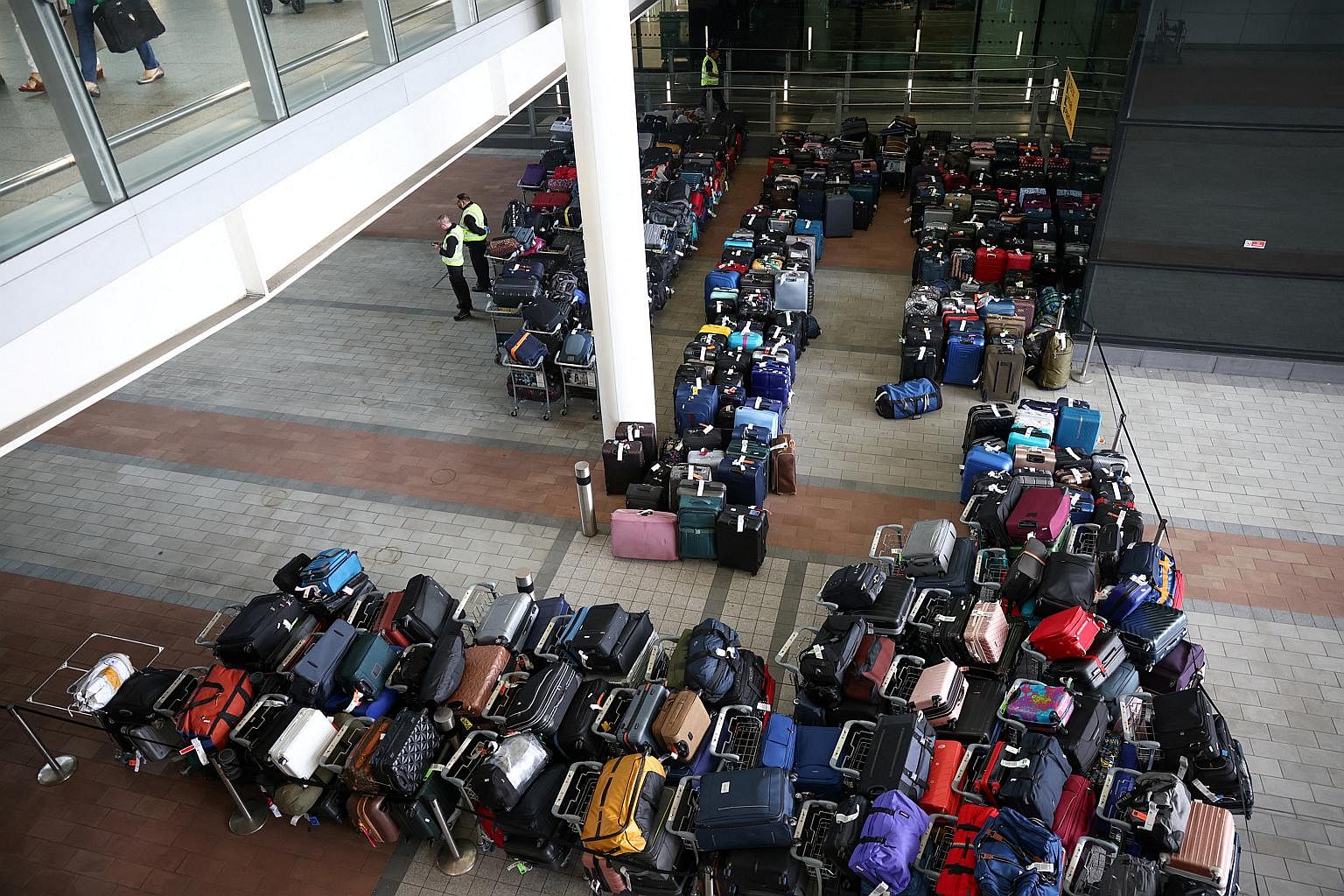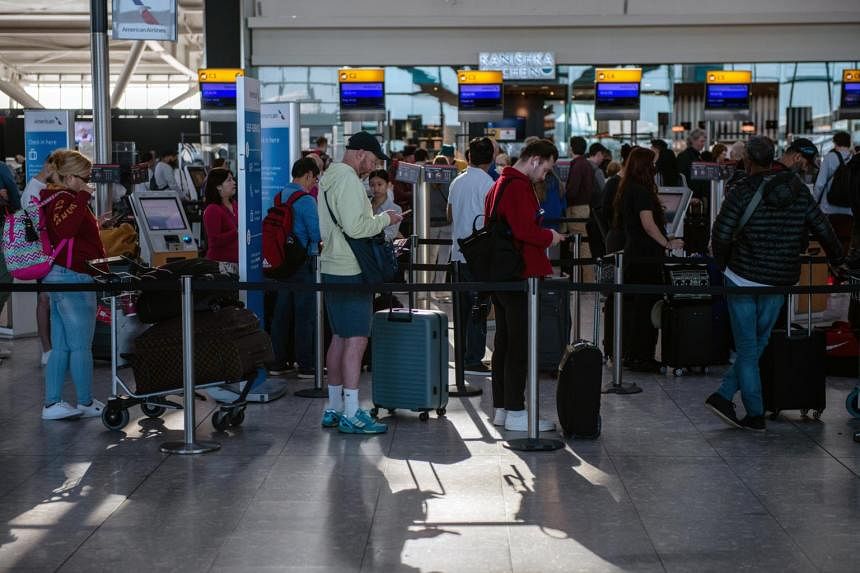NEW YORK (NYTIMES) - The summer travel season in Europe has been marred by chaos at airports and popular tourist destinations as airlines, government agencies and industry operators struggle to meet travel demand, which, in some spots, has already surpassed 2019 levels.
The mayhem is likely to get worse, travel experts warn, as more people decide to travel following the recent decision by the Biden administration to drop its coronavirus testing requirement for international air travel.
Hundreds of flights have been cancelled and delayed daily at major European airport hubs over the past two weeks. At London's Heathrow and Amsterdam's Schiphol airports, passengers waited up to six hours in security lines, and those waiting to check in spilled out of the terminals into parking lots.
"There were huge crowds of confused and frustrated people everywhere and no information," said Ms Eliza Glass, 28, who arrived at Heathrow in early June to find her flight to Toronto cancelled. "After one hour of walking around in circles, I just sat on my suitcase and cried."
In the United States, airports and airlines face labour shortages, adverse weather conditions and a rise in coronavirus cases among staff. But wait times, delays and cancellations have not reached the same level. Airlines cancelled more than 2,800 flights over the Memorial Day weekend and 20,644 flights were delayed, according to aviation data site FlightAware. Several air carriers, including Delta Air Lines, JetBlue Airways and Spirit Airlines, are reducing their summer schedules to help prevent further disruptions.
For those planning to travel to Europe this summer, here is a look at how they can be affected by disruptions, and some tips on how to prepare.
What is causing the chaos at European airports?
The travel industry calls it "the perfect storm" with multiple factors. The lifting of Covid-19 travel restrictions across Europe since April has caused a sudden surge in demand and travel companies are struggling to staff their operations.
Airports and airlines laid off tens of thousands of workers during the pandemic and many are reluctant to go back to their old jobs, many of which offered low pay and long hours. Recruiting and training new staff, particularly pilots and airport security staff, can take time and many positions are unlikely to be filled in time for peak summer travel.
Adding to the upheaval, aviation workers in Europe have held strikes in recent weeks, demanding better working conditions and higher salaries to help ease soaring inflation. Paris Charles de Gaulle airport cancelled more than 100 flights last Thursday after its union announced a walkout. More than 360 flights were cancelled in and out of Italian airports last week after air traffic controllers and cabin crew staged a 24-hour strike.
Mr Willie Walsh, director general for the International Air Transport Association, an airline trade group, said that Covid-19 policy changes by governments created a lot of uncertainty and gave the travel industry little time to prepare for the restart of travel after a two-year shutdown.
I have already booked my tickets. What could I be facing?
Be prepared for long lines, flight cancellations and delays, even after you have arrived at the airport for check-in as some airlines are changing flight schedules at the last minute. Download your carrier's app to get the most up-to-the-minute changes and for easier rebooking from your phone.
At many European airports, experts are advising passengers to arrive three to four hours before their scheduled flights to get through long lines.
The staff shortages at airports have also caused baggage delivery delays with some passengers waiting up to a week to reclaim their luggage. Some travel operators are advising travellers not to check in baggage, but if travelling light is not an option, then be sure to pack a carry-on with essential items for the first few days of your trip.

Could it get worse?
Unfortunately, it could. Travel industry representatives and unions expect the disruptions to get worse before they get better, particularly during July and August. The Biden administration's decision to drop the requirement for a negative coronavirus test before flying to the US may only add to the surge in demand.
Can anyone help?
Both American and European carriers are required to offer you a refund if they cancel or reschedule your flight significantly and you decide not to travel. But they are not required to compensate you for accommodations, car rentals or other prebooked services on your trip.
You may want to consider travel insurance to cover costs tied to flight disruptions such as accommodations and lost baggage, but be sure to read the fine print as policies vary and might provide only limited coverage. When booking a trip, it is also helpful to opt for the most flexible cancellation policies at hotels and car rental companies.
Using a travel adviser can be useful, especially if your trip has multiple destinations, as flight disruptions can have a domino effect, upending lodging reservations and any other time-sensitive bookings. The adviser can help navigate obstacles and make changes to your itinerary while you are in transit - though they, too, may face hiccups.

